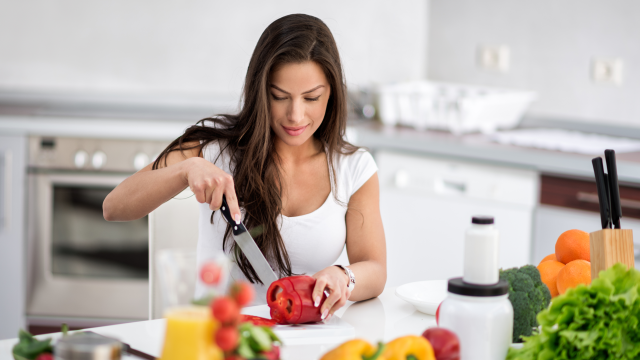To help reduce your risk of cataracts clouding your vision as you age, pluck these items out of your crisper drawer: bell peppers, broccoli and oranges.
One study revealed that people with higher blood levels of vitamin C may have a much lower risk of developing cataracts, while people with low C may develop higher rates of the eye condition. Bell peppers, broccoli and oranges are all super sources of this nutrient.
Diet vs. supplement
While advancing age is the primary risk factor for cataracts, research has linked lots of other factors to a person's likelihood of developing the lens-clouding condition. Other risk factors include having diabetes or high blood pressure, being obese, smoking, drinking too much alcohol and getting too much UV light exposure. Nutritional status has also been investigated, but most research to date has been done on cataract prevalence in people who take vitamin C supplements, and most of the results have proved contradictory or inconclusive. But this study is significant in that it examined cataract risk in relation to intake of vitamin-C-rich foods rather than supplements.
Get yours here
Cataracts affect over 20 million Americans age 40 and older. And by age 80, more than half of all Americans will have cataracts. So why not add foods that could help prevent cataracts and help keep your vision sharper longer? Red bell peppers, broccoli, oranges, cantaloupe, carrots, sweet potatoes and winter squash are all great sources of vitamin C. But you should also be a faithful wearer of sunglasses to help reduce your risk, and say no to tobacco. And see your vision care specialist regularly for screening.






